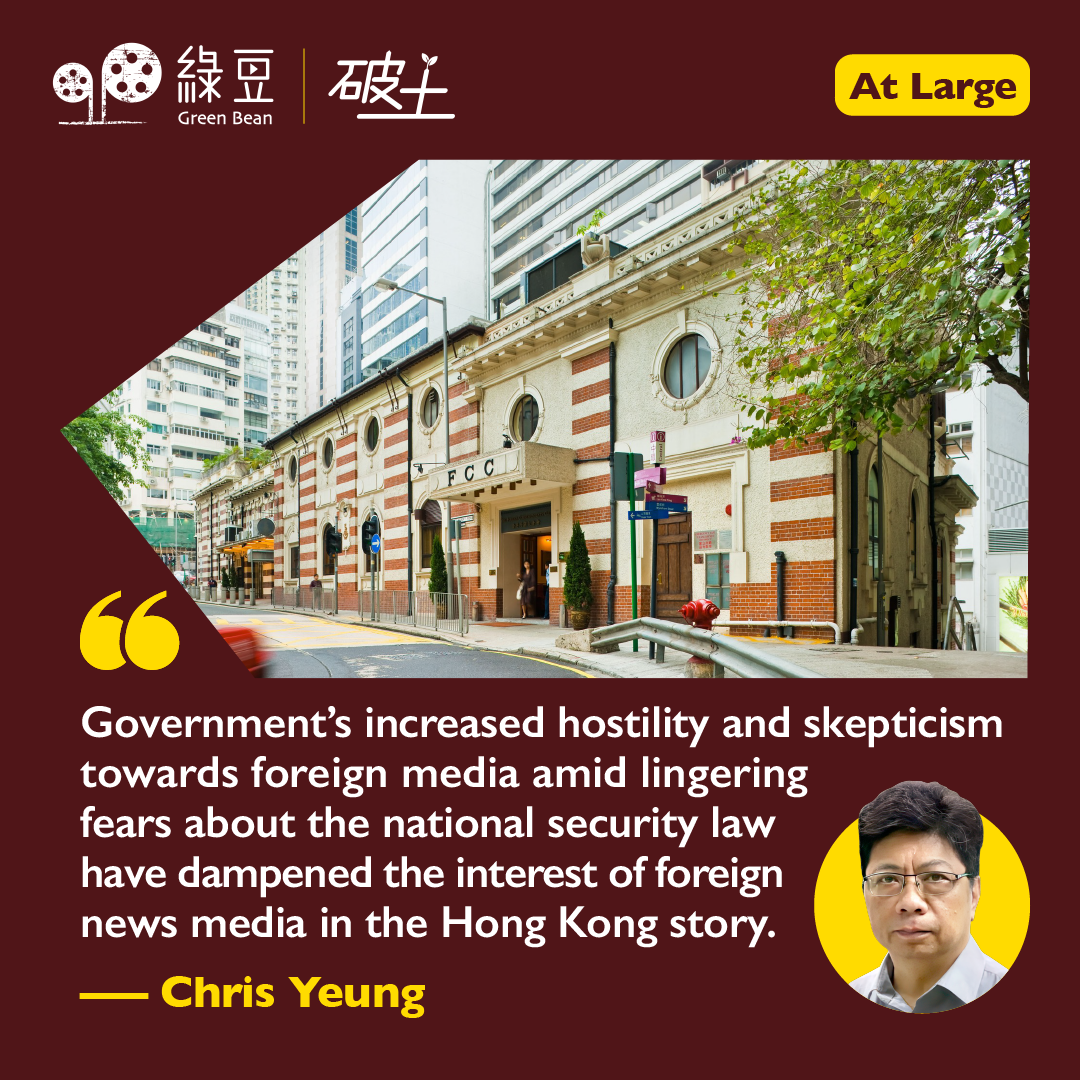Foreign media shrinks as HK seems a non-story

Twenty-seven years ago today (July 1, 1997), thousands of foreign journalists converged in Hong Kong to tell the story of the end of British colonial rule and the beginning of the experiment of “one country, two systems” under Chinese sovereignty.
There were two sharply contrasting handover stories that unfolded at the stroke of midnight.
Inside the newly-built Hong Kong Convention and Exhibition Centre, leaders and top officials from both countries assembled to testify to the historic moments when the Union Jack pulled down, followed by the raising of the Chinese national flag.
At the balcony of the former Legislative Council, now the site of the Court of Final Appeal, a group of pro-democratic lawmakers told supporters in the late hours they would come back.
Elected in 1995, their four-year team came to an early end after talks between China and Britain over the electoral arrangements for the pre-1997 legislature broke down. The Legco elected in accordance with a blueprint put forward by last governor Lord Patten was dissolved on July 1, 1997. The rest is history.
Put together, the stage-managed official ceremonies and the acts and speeches of the defiant democrats spoke volumes of the dynamics of a changing Hong Kong that foreign journalists found it was a great story that they should tell the world.
Foreign media in and out
Since then, China’s entry into the World Trade Organisation ushered a new era of openness and rapid growth in the populated country. Striving to tell the China story, major international media organisations had increased their presence in the city. Some set up their regional headquarters here.
27 years on, the July 1 anniversary seems to have become a non-event to foreign media. More profoundly, foreign media feel increasingly perplexed about the Hong Kong story and the China story.
The past 12 months saw the trend of foreign media relocating its staff from their Hong Kong offices to other parts of the region continuing. In May, The Wall Street Journal announced in an internal memo its Asia headquarters will be relocated from Hong Kong to Singapore.
In response to the enactment of the Hong Kong national security law in 2020, The New York Times moved part of its regional office in Hong Kong to Seoul.
NYT’s executive editor Joseph Kahn said at a news award ceremony for the Society of Publishers in Asia on June 20 Hong Kong had once been a bridge between the East and the West in a time when mainland China “remained largely inaccessible to Western journalists.
He said that had changed after the national security law was in place, adding the dwindling presence of international news media in Hong Kong was a loss for the city.
Government’s attitude
The Hong Kong government appears to think otherwise, or did not seem to care at all.
In the lead-up to the second anniversary of the John Lee administration, he and his top aides have stepped up publicity on their work through interviews with local news media. As of Friday, there were no second-anniversary interviews of Lee by foreign media.
Since taking office two years ago, Lee did not seem to be keen to forge close ties with foreign media. Major US and UK news media have indeed been the regular targets of denials and rebuttals of what they had written or reported about the national security laws and related trials by the Hong Kong government.
Speaking in an interview with the South China Morning Post, Lee has vowed to keep fighting a “serious misinformation campaign” orchestrated by the West. Without specifying he said: “The serious disinformation campaign will just go on. It’s not easy. We have very professional liars, thieves, who are all trained up by different governments to steal, to lie, and to cheat you.”
His sharp attacks against “serious misinformation campaign” orchestrated by the West are in line with his claims that hostile foreign forces have posed a major threat to the city’s stability and prosperity.
Be it real or perceived, the Government’s increased hostility and skepticism towards foreign media amid lingering fears about the national security law have dampened the interest of foreign news media in the Hong Kong story.
It has come as no surprise that some have decided to reduce their presence when they found the story of Hong Kong is no longer fascinating. To some, rightly or wrongly, it is over. Or to put it bluntly, it is a non-story.
( Photo: FCC FB)
▌[At Large] About the Author
Chris Yeung is a veteran journalist, a founder and chief writer of the now-disbanded CitizenNews; he now runs a daily news commentary channel on Youtube. He had formerly worked with the South China Morning Post and the Hong Kong Economic Journal.